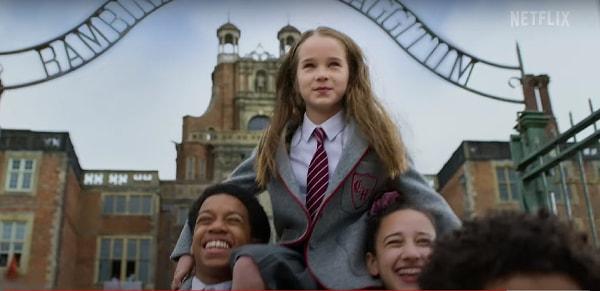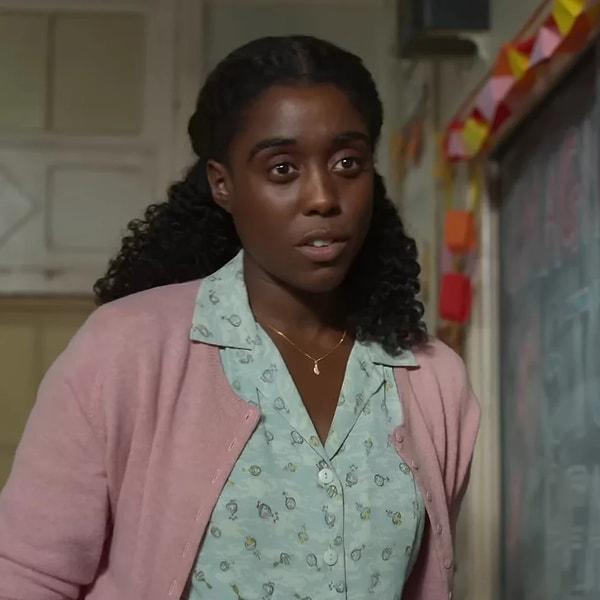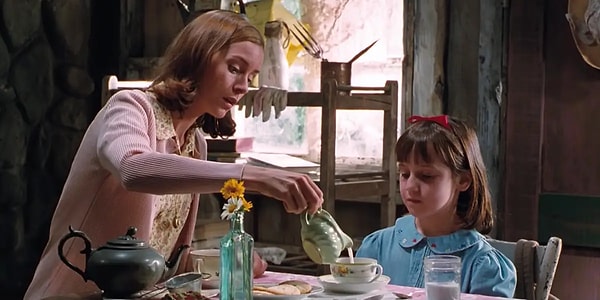Matilda The Musical: The Good and the Bad
There was a time when musicals took center stage. Songs transformed basic productions into an event, and they could be relied upon to boost sales. They were so successful that in the early days of film, there were executives who refused to do anything else. They couldn't imagine a boring old movie with nothing but talking. That wasn't enough for them, and it didn't bring people into the theater--certainly not the entire family.
Without music, the audience would get restless. They'd have to stop and take a break. They needed the energy level that musicals provide. Today, it's the opposite. Nobody wants to sit through a song to figure out what's going to happen next. They don't want that moment of introspection. They want action and CGI.
Film musicals are a thing of the past. They're almost universally panned by the critics. Most investors won't spend a cent on them. Even Disney, which was known for its songs, has phased them out. So it makes sense that people would overlook the new Matilda adaptation. The original 1996 film is considered a classic. It captured all of the magic and wonder behind Roald Dahl's novel, and it's aged well. There's no bad graphics or special effects and no outdated technology. It's timeless.
We can't talk about Matilda without addressing the older demographic that originally fell in love with the franchise. To many of us, the 1996 film is sacred ground. It's not just something sweet to watch. It was Roald Dahl's message to children who were being oppressed and abused. He knew they were completely powerless, and they needed hope, even if there was none. So he gave them a champion who could move past the confines of reality and do what they could never do.
He knew how unbearable their existence could be. Sometimes living in the real world is too painful, so he gave children an outlet. Instead of turning to drugs and vice like many kids in Matilda's situation, she realized that there was a library just a few blocks away. If she really needed an escape, she could get out of the house or dig her nose in a book.
Dahl also wanted kids to understand the value of rebellion and doubt. That is not a message they hear very often, but it's one that they desperately need. A lot of our false beliefs and bad habits come from our parents and those who raise us. Children of smokers tend to smoke. Children of drinkers tend to drink. Children in abusive households turn out to be abusive themselves. Parents pass all of that baggage and ridiculousness down through the generations. Then they tell their kids to listen and obey. The kids have no way of knowing that they're being led by the blind. They have to be taught to think for themselves, question, and come to understand the world on their terms, not their parents' or their teachers'. It saves them a lot of grief later in life, and it's good for society in general.
We think of Roald Dahl as an old fogey. He was alive at the same time as many of the great classicists of the modern era. He's often associated with C.S. Lewis and Tolkien. But Matilda wasn't written until 1988--two years before his death, and it was relatively progressive.
Corporal punishment was being debated in the public forum. Lawmakers across the US were arguing about whether or not abuse should be seen as a criminal act. Domestic violence wasn't even considered illegal in many regions, and people fought to stop those laws from being passed.
But children were suffering, and they had been suffering for a long time. Matilda became an instant classic because, like any great writer, Dahl had learned to tap into an emerging social discourse, and he used a set of universal themes that could carry on through the generations.
We Have Demands
Fans need a Matilda that holds up to the highest standards. We are talking about a great American classic, not some basic chapter book for third graders. There's a certain allure, a spirit of excitement and expression. Miss Honey should glow and make us smile. We need to stand up and cheer when the Trunchbull finally topples to the ground, and we should walk away with a sense of triumph and empowerment.
None of that is going to happen. Dahl's ability to make the audience believe in fantasy doesn't work on grownups. We're not as easily impressed or amazed, and we don't respond to material we've already seen. We'll compare every remake to the old, 1996 film and the novel we used to cherish, and nothing will hold up.
Modern kids won't carry that kind of baggage into the theater. They have no assumptions, but they do have a list of demands. We've all seen them roll their eyes when cartoons come on and jump up in joy when their favorite characters are rendered in CGI. Their tastes evolve, and they like very specific things. Musicals are not what they're used to. They may react well or they could immediately turn their attention somewhere else.

Courtesy of Netflix
What Matilda the Musical Brings to the Table
The musical has some problems, and it's more than just a matter of taste. Some things--specifically Matilda's time with her parents--seemed rushed. We didn't see as much of their lives. It made it harder to identify with her struggle as a whole. That was an amateur mistake. It shirks all of the basics of storytelling. The audience's connection is based on how invested they are in the protagonist's future. They have to feel for Matilda, and they won't. The film was also off-beat.
The music made everything cheery and boisterous, even during scenes that should've been somber. It didn't have the right effect, and it didn't blend well with the environment. Someone would start singing and all of a sudden, Crunchem Hall would be transformed into a Las Vegas special with fireworks and giant sets. Kids would go from basic school clothes to bright-red suits made of sequins. It didn't work.
The real problem was the Trunchbull. God love Emma Thompson, she makes a great antagonist, but she's corny, and she didn't bring half of the talent Pam Ferris brought to the table. Ferris ruled the stage, nose upturned, stalking through rows of school desks. We felt--and we would still feel--every single word she said. She was the wicked headmistress we needed. Emma Thompson was not. She's half Ferris' size after a trip to the buffet, so they gave her a massive chest plate to make her look bigger. But they left her stomach alone, and they had her wear a tight belt. They also skipped most of the padding so parts of her would deflate when they weren't supposed to. It was so fake that it was hard to focus on anything else. Her acting was horrific. She didn't put any effort into the role, probably because she didn't have to. She's a thousand times more popular and successful than Ferris. She has nothing to prove. All she has to do is change clothes, say the lines, and someone will hand her an award. So she never stepped into the role. Netflix made a big deal of making it seem like she did. They went over her transformation and her makeup in promotional videos. But Dahl was very descriptive. He took pains to make sure we could envision everything about his characters. That was not the Trunchbull. It was a heretical parody barely fit for a school play, much less a major Hollywood production.

Courtesy of Netflix
Frankly, the musical was irredeemable, but there were a few things worth noting. Hollywood tends to shy away from the original illustrations in Dahl's books. They're a little vulgar and there's none of the glitz that films seem to go for. The musical decided to stick with the style and see how it worked. This version of Matilda was a lot closer to the thin, mousy girl Dahl first envisioned. She wasn't adorable. She was a tiny bobcat who did what she wanted when she wanted, and she was not about to apologize for it.
That intensity did transfer over, and there were times when it became inspiring. When Matilda's powers manifested, for example, I had chills. This was partially because of the song. For all of their faults, musicals are capable of conveying things that you won't see in other formats. We can hear about somewhere over the rainbow or the colors of the wind and really get into a character's head. That moment of introspection was refreshing. It allowed for a greater understanding of the source material, something many adults will appreciate.
It's possible that they did this on purpose to appeal to adults who watched the film when they were younger. That's a basic problem with remakes, and it's something that they tend to take into consideration. It might be why they focused on expanding Miss Honey's motivations and backstory. As a member of that target demographic, I can say the tactic definitely worked. I identified with her, and I liked that her situation was darker than in the original film. She lived in a shed on an old piece of land, not an idyllic cottage surrounded by flowers. The level of poverty was astounding, but she made do, and she wasn't motivated by greed or selfishness. She devoted herself to a cause that she cared about. That's something people in my generation can understand and admire. It also brought a new story to the forefront--one centered around bad landlords, racial discrimination, and toxic work environments. It gave adults the same sense of empowerment they got from the original when they were young, and it's more in time with the spirit of Roald Dahl's work than many of us realize.

Courtesy of Sony Pictures Releasing
Was Matilda the Musical a Hit or a Miss?
Matilda was a rebellious, telekinetic prodigy who could perform complex calculations in her head. She will always get a high score, but this new adaptation did not. Even as a lighthearted family film, it didn't fit the bill. Children may or may not get into it. You might end up putting on the movie for bedtime and find that they're too restless to settle down.
But they did try. There was a lot of talent and heart that went into the production, so it's worth a watch--even if just for a moment of nostalgia.
After the Kids Go to Bed
Roald Dahl is one of the most recognizable names in children's fiction. But his books weren't necessarily age-appropriate. The Witches was terrifying, even for adults. The Twits was gross. Charlie and the Chocolate factory was bleak and sadistic. Wonka intentionally setup the tour to mutilate those kids, and he said so. In the first edition novel, the Oompa-Loompas were actually African Pygmies that had been coerced into working for cacao beans.
This list of absurdities goes on and on. In fact, the more you look into Roald Dahl's work--especially his unedited drafts--the more you start to wonder about his sanity. How do you depict the chocolate factory unless you're familiar with the psychedelic mindset? Why would he terrify children into thinking witches were stalking the streets? It doesn't sit right. None of his work does.
That's because Roald Dahl was a dark, deranged human being who simply couldn't help himself. He was in love with the worst kind of horror and freaky erotica, but like many writers, he had to find a more lucrative genre in order to turn his passion into a career. It's a shame. His other work might not have sold as well as his children's books, but it is by far his best. Find his short stories and consider this your trigger warning.
Keşfet ile ziyaret ettiğin tüm kategorileri tek akışta gör!

Send Comment